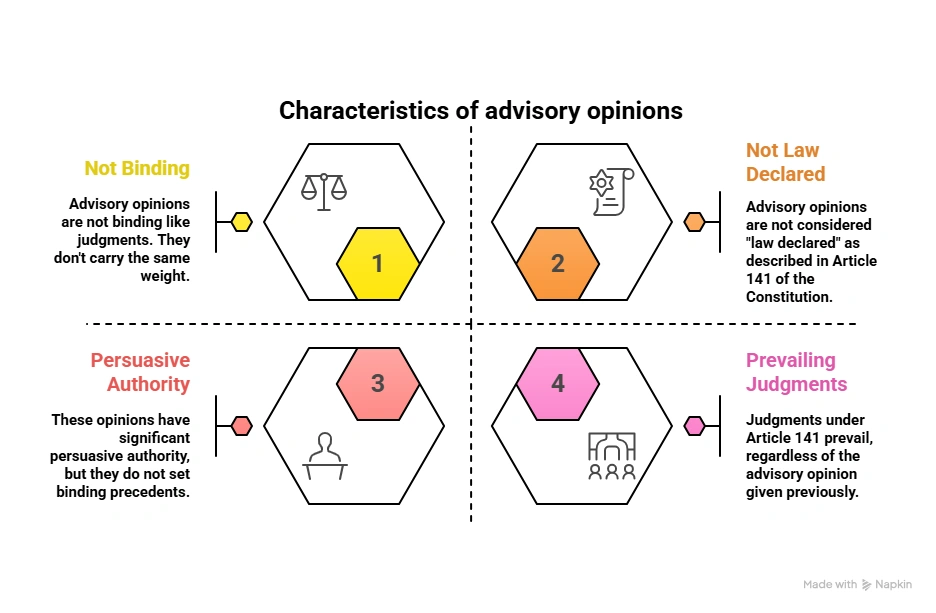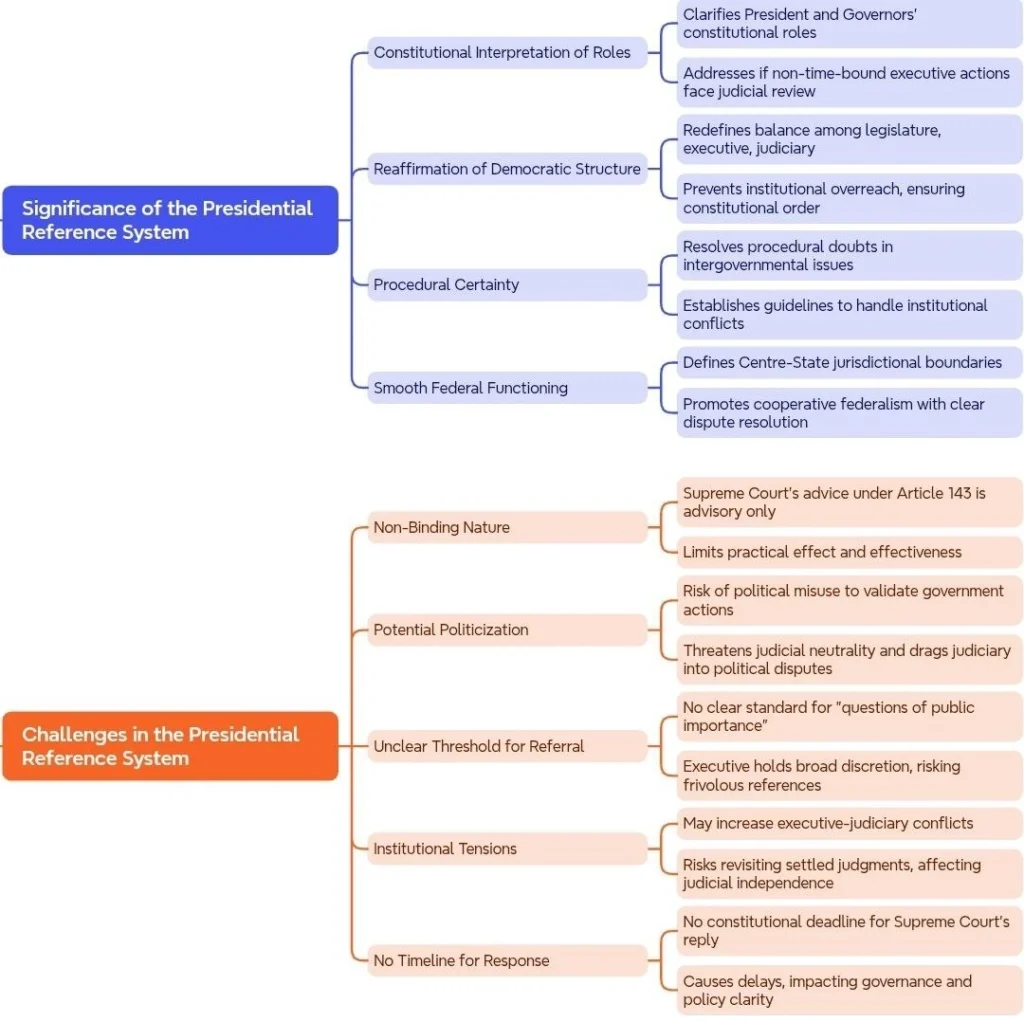Paper: GS – II, Subject: Polity, Topic: Executive, Issue: Presidential Reference – Article 143.
Context:
The Supreme Court issued notices to the Centre and all States on a Presidential Reference seeking clarity on whether the President and Governors can be judicially compelled to act within set timelines on State Bills.
Key Takeaways:
| What is Article 143 of the Indian Constitution? About: Article 143 (Advisory jurisdiction) empowers the President of India to seek the SC’s advisory opinion on any question of law or fact that is of public importance and is likely to arise or has already arisen. This provision establishes the SC’s advisory jurisdiction, which is exclusive to the President. Types of Questions Referred: Article 143 (1): The President may refer any question of law or fact of public importance which has arisen or which is likely to arise. Here, the Supreme Court may tender or may refuse to tender its opinion to the president. Article 143(2): It allows the President to refer disputes arising from out of any pre-constitution treaty, agreement, covenant, sanad or other similar instruments. The SC must tender its opinion to the President. Nature of the Advice: In both the cases, the opinion expressed by the SC is only advisory and not a judicial pronouncement. Hence, it is not binding on the president; she may follow or may not follow the opinion. However, it facilitates the government to have an authoritative legal opinion on a matter to be decided by it. |

Role of the Supreme Court under Article 143:
- The Court highlighted that when a Governor reserves a Bill for the President under Article 200, citing “perceived unconstitutionality”, the President “ought to” seek the Supreme Court’s opinion under Article 143.
Nature of SC’s Opinion under Article 143:
- The Court acknowledged that its advisory opinion under Article 143 is not binding.
- However, it holds high persuasive value and should ordinarily be accepted by both the legislature and the executive.
- The non-binding nature does not undermine the Court’s reasoning or principles used to assess constitutionality.
Key Issues in Current Reference:
- It raises issues about whether courts can impose timelines on President and Governors not explicitly stated in the Constitution (especially under Articles 200 and 201).
- It also questions the extent of the SC’s power under Article 142 (complete justice provision).
Significance and Challenges of the Presidential Reference System:

The Presidential Reference aims to clarify executive duties on legislative bills and the judiciary’s role in enforcing timelines. While the Supreme Court may offer advisory opinions, their non-binding nature and restrictions on revisiting settled rulings remain key limitations of this process.
La Excellence IAS Academy, the best IAS coaching in Hyderabad, known for delivering quality content and conceptual clarity for UPSC 2025 preparation.
FOLLOW US ON:
◉ YouTube : https://www.youtube.com/@CivilsPrepTeam
◉ Facebook: https://www.facebook.com/LaExcellenceIAS
◉ Instagram: https://www.instagram.com/laexcellenceiasacademy/
GET IN TOUCH:
Contact us at info@laex.in, https://laex.in/contact-us/
or Call us @ +91 9052 29 2929, +91 9052 99 2929, +91 9154 24 2140
OUR BRANCHES:
Head Office: H No: 1-10-225A, Beside AEVA Fertility Center, Ashok Nagar Extension, VV Giri Nagar, Ashok Nagar, Hyderabad, 500020
Madhapur: Flat no: 301, survey no 58-60, Guttala begumpet Madhapur metro pillar: 1524, Rangareddy Hyderabad, Telangana 500081
Bangalore: Plot No: 99, 2nd floor, 80 Feet Road, Beside Poorvika Mobiles, Chandra Layout, Attiguppe, Near Vijaya Nagara, Bengaluru, 560040
